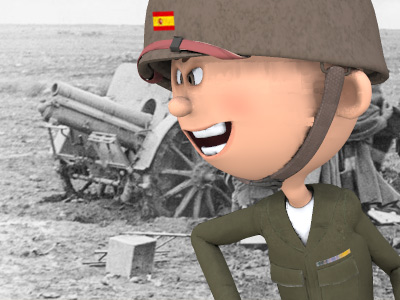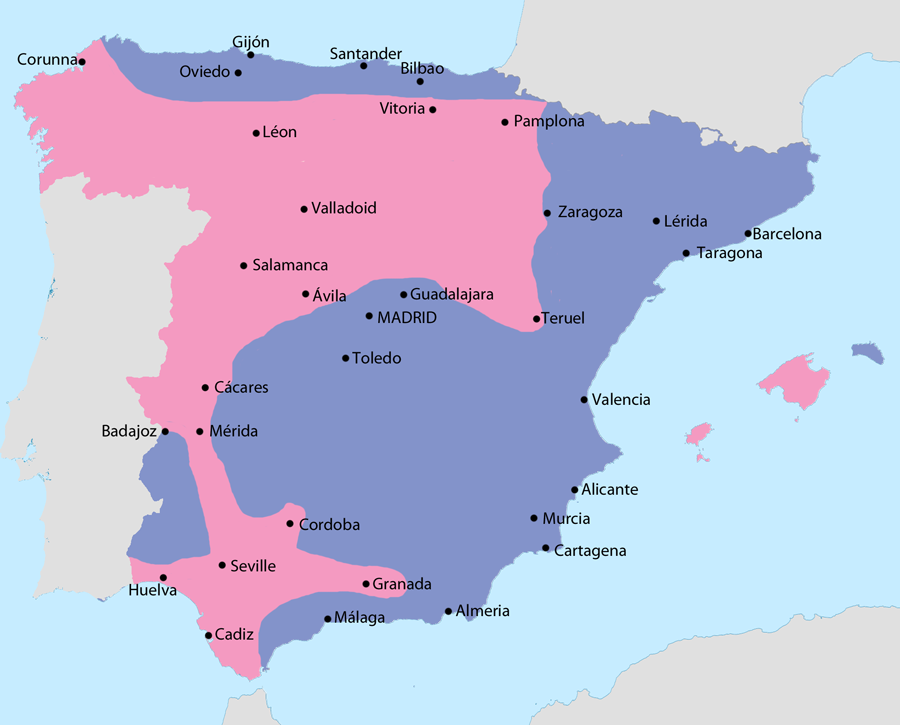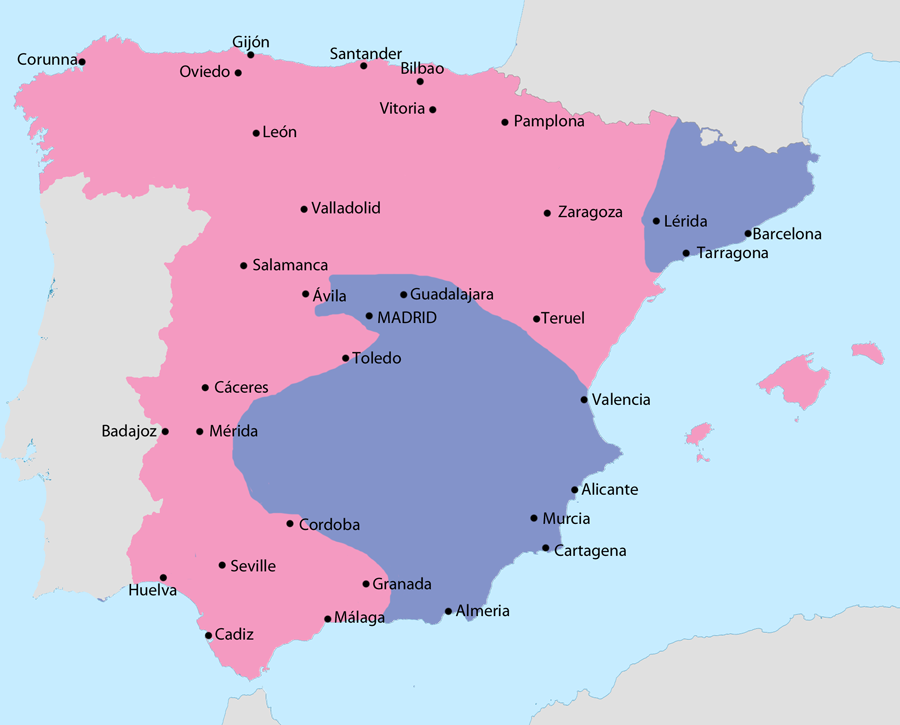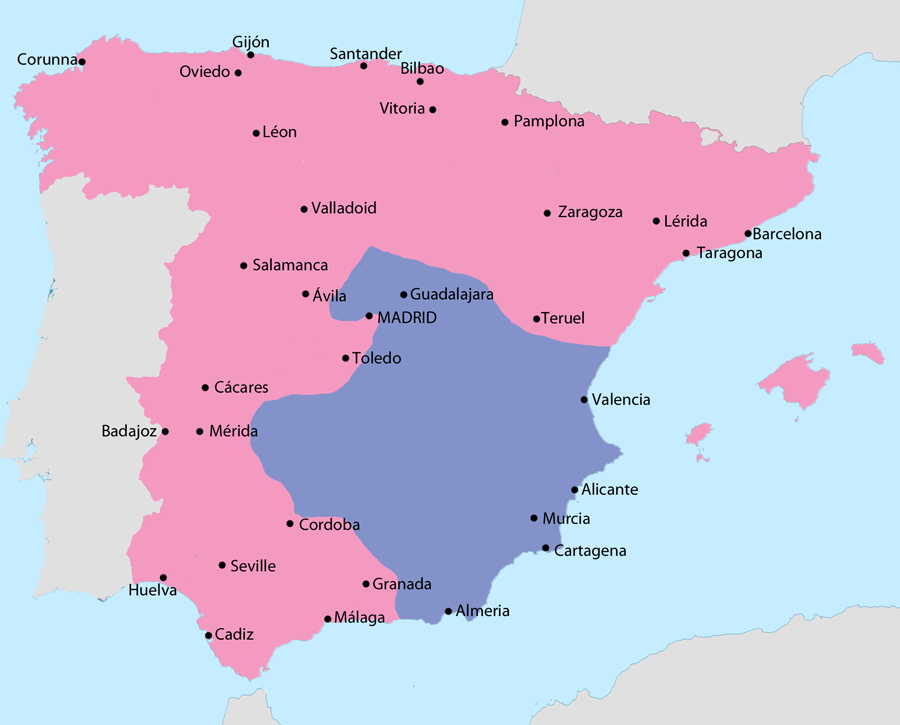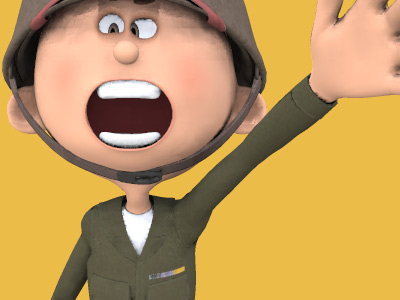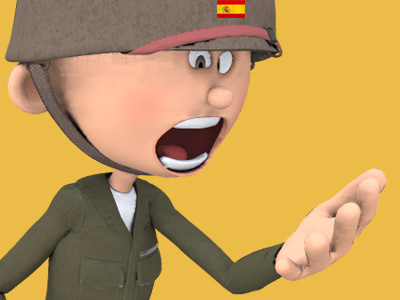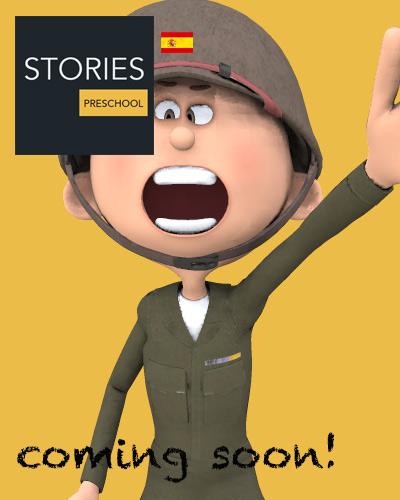Spanish Civil War (1936 to 1939)
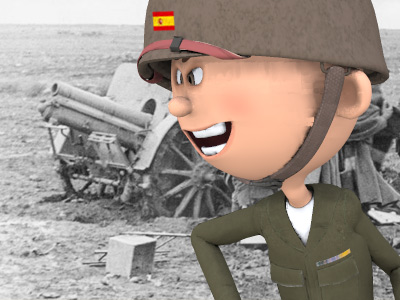
1937
With his ranks swelled by Italian troops and Spanish colonial soldiers from Morocco, Franco made another attempt to capture Madrid in January and February 1937, but was again unsuccessful. The Battle of Málaga started in mid-January, and this Nationalist offensive in Spain's southeast would turn into a disaster for the Republicans, who were poorly organised and armed. The city was taken by Franco on 8 February. The consolidation of various militias into the Republican Army had started in December 1936. The main Nationalist advance to cross the Jarama and cut the supply to Madrid by the Valencia road, termed the Battle of Jarama, led to heavy casualties (6,000–20,000) on both sides. The operation's main objective was not met, though Nationalists gained a modest amount of territory.
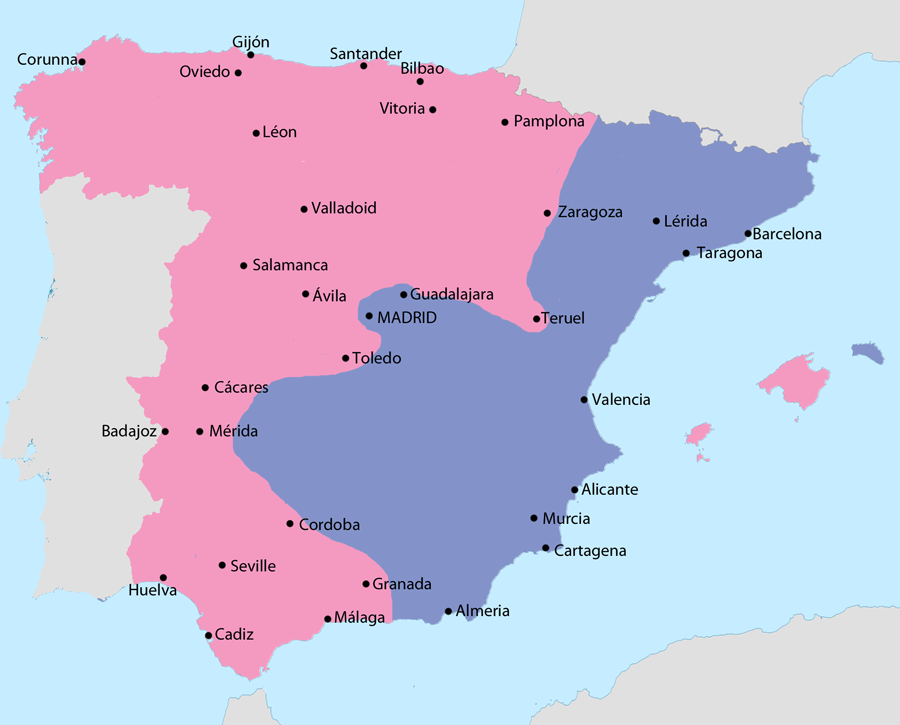
Map showing Spain in October 1937
(Pink) Area under Nationalist control
(Purple) Area under Republican control
A similar Nationalist offensive, the Battle of Guadalajara, was a more significant defeat for Franco and his armies. This was the only publicised Republican victory of the war. Franco used Italian troops and blitzkrieg tactics; while many strategists blamed Franco for the rightists' defeat, the Germans believed it was the former at fault for the Nationalists' 5,000 casualties and loss of valuable equipment. The German strategists successfully argued that the Nationalists needed to concentrate on vulnerable areas first.
The "War in the North" began in mid-March, with the Biscay Campaign. The Basques suffered most from the lack of a suitable air force. On 26 April, the Condor Legion bombed the town of Guernica, killing 200–300 and causing significant damage. The destruction had a significant effect on international opinion. The Basques retreated.
April and May saw the May Days, infighting among Republican groups in Catalonia. The dispute was between an ultimately victorious government –Communist forces and the anarchist CNT. The disturbance pleased Nationalist command, but little was done to exploit Republican divisions. After the fall of Guernica, the Republican government began to fight back with increasing effectiveness. In July, it made a move to recapture Segovia, forcing Franco to delay his advance on the Bilbao front, but for only two weeks. A similar Republican attack, the Huesca Offensive, failed similarly.
Mola, Franco's second-in-command, was killed on 3 June, in an airplane accident. In early July, despite the earlier loss at the Battle of Bilbao, the government launched a strong counter-offensive to the west of Madrid, focusing on Brunete. The Battle of Brunete, however, was a significant defeat for the Republic, which lost many of its most accomplished troops. The offensive led to an advance of 50 square kilometres (19 sq mi), and left 25,000 Republican casualties.
A Republican offensive against Zaragoza was also a failure. Despite having land and aerial advantages, the Battle of Belchite, a place lacking any military interest, resulted in an advance of only 10 kilometres (6.2 mi) and the loss of much equipment. Franco invaded Aragón in August and took the city of Santander. With the surrender of the Republican army in the Basque territory came the Santoña Agreement. Gijón finally fell in late October in the Asturias Offensive. Franco had effectively won in the north. At November's end, with Franco's troops closing in on Valencia, the government had to move again, this time to Barcelona.
HISTORY
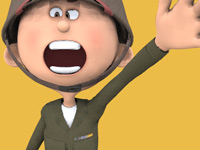
RESOURCES
This article uses material from the Wikipedia article "Spanish Civil War", which is released under the Creative Commons Attribution-Share-Alike License 3.0.
© Stories Preschool. All Rights Reserved.
